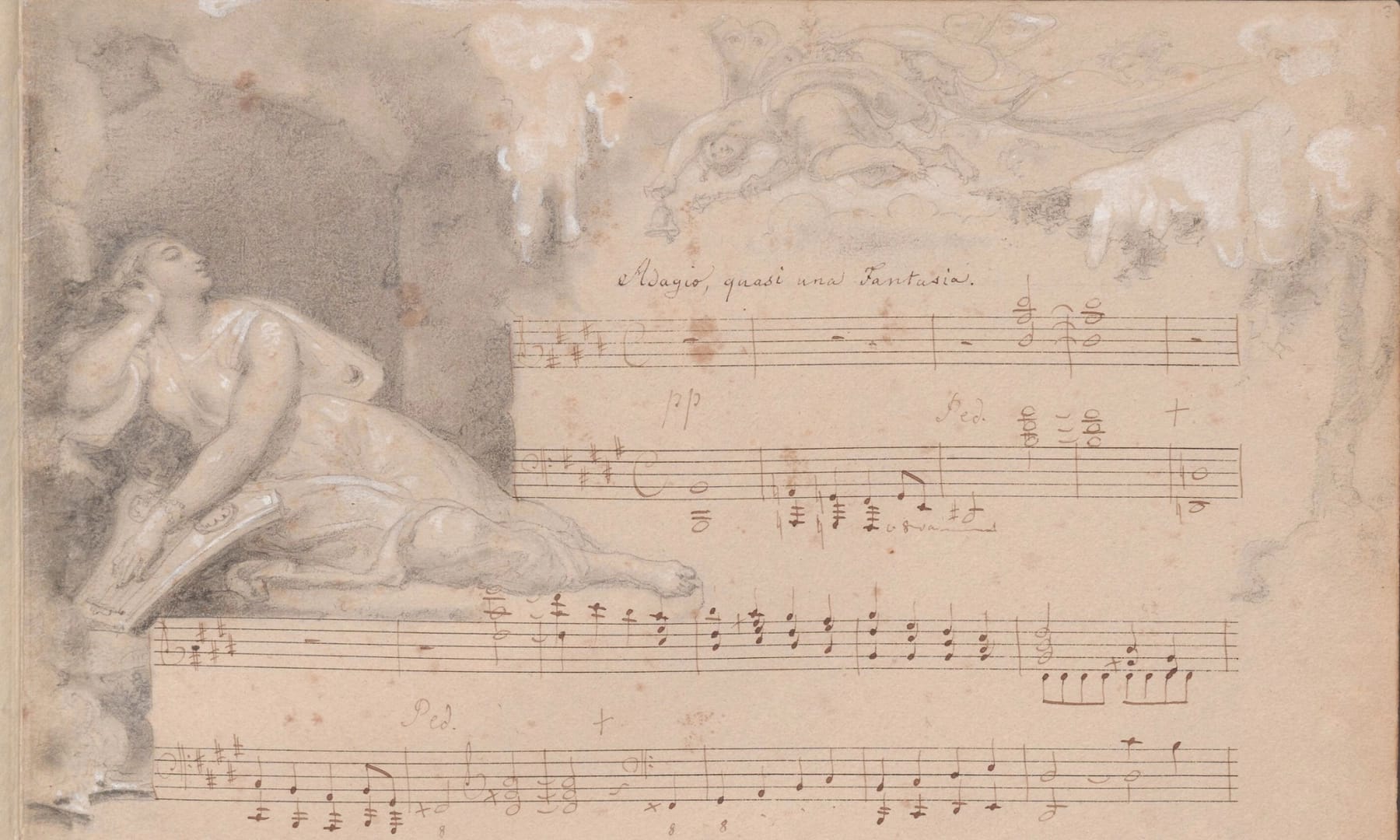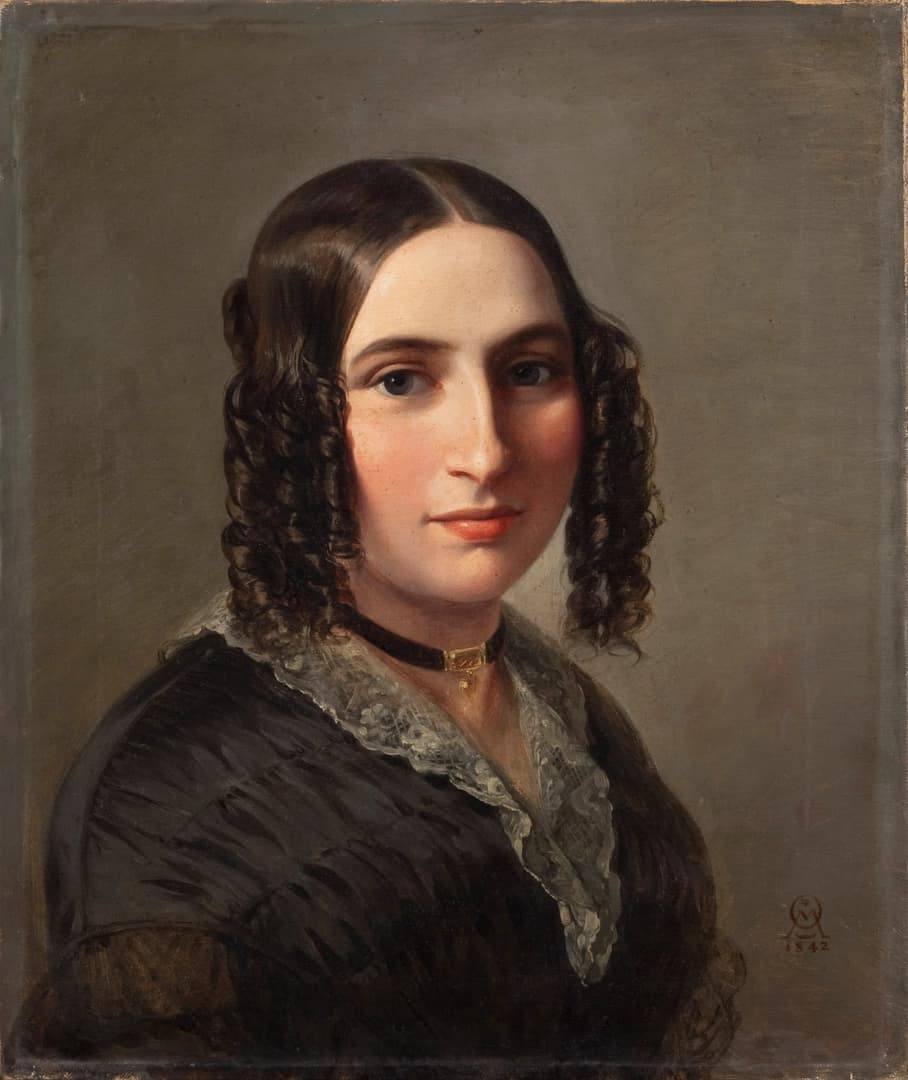
articles / Saturday Morning Car Tunes
Saturday Morning Car Tunes: Fanny Hensel
Public Domain

Heritage Images/Getty Images
Listen to the episode!
This week, meet Fanny Hensel! She wrote over 450 works, including one of the first string quartets by a woman. She only published her music a year before she died, and now it's finally getting the attention it deserves.
Howdy, howdy, howdy! I’m Solomon Reynolds, and this is: Saturday Morning Car Tunes! This morning…
Fanny Hensel, born Fanny Mendelssohn in 1805 in Germany, was a prolific composer and prodigious pianist who championed Bach, Beethoven, and her brother Felix Mendelssohn. She wrote nearly 500 works but spent her life torn between composing and following the rules for upper-class women.
Sometimes her brother published her music as his own, probably to protect her reputation while still letting her enjoy seeing her work made public. Famously, when Felix visited the Queen, she asked to sing a song she thought was his, but he had to admit it was actually his sister’s. That was this song, called “Italy.”
At the end of her music studies, Fanny wrote her Easter Sonata, inspired by Bach and Beethoven. Its lyricism shows the Mendelssohnian style she developed with her brother.
For her wedding, Fanny wrote her own organ processional.
After a difficult and dangerous pregnancy, Hensel’s only child was born a month early: Sebastian Ludwig Felix, named for her three favorite composers. She wrote the cantata Song of Praise for her son.
Continuing her interest in Felix’s orchestral music and Beethoven, Hensel explored writing for large ensembles. This is her only piece for orchestra, her Overture in C.
Hensel’s String Quartet in E♭ is one of the first quartets written by any woman. Although one of her most impressive works, it was never performed publicly during her life.
The Year is a set of solo piano pieces representing the twelve calendar months. It’s some of Hensel’s very best music. This is No. 10, “October,” a hunting song.
Published only after her death, Hensel’s Piano Trio in D minor was praised as a masterpiece by Berlin’s most important music magazine. She passed away a month after finishing it. She was 41. The day before she died, Hensel wrote her last song, “Mountain Rapture.”
It ends with “Our fantasies as well as our songs rise up until they reach heaven,” words later engraved on her tombstone. It’s hard not to wonder what Hensel could have done if she were encouraged to compose. Today, the music she did write still rises up over the radio.
I’m Solomon Reynolds. I write and produce Saturday Morning Car Tunes with research assistant Carolina Correa and audio engineer Stephen Page, only on Classical California. Tune in—or out of your car—next Saturday morning!






